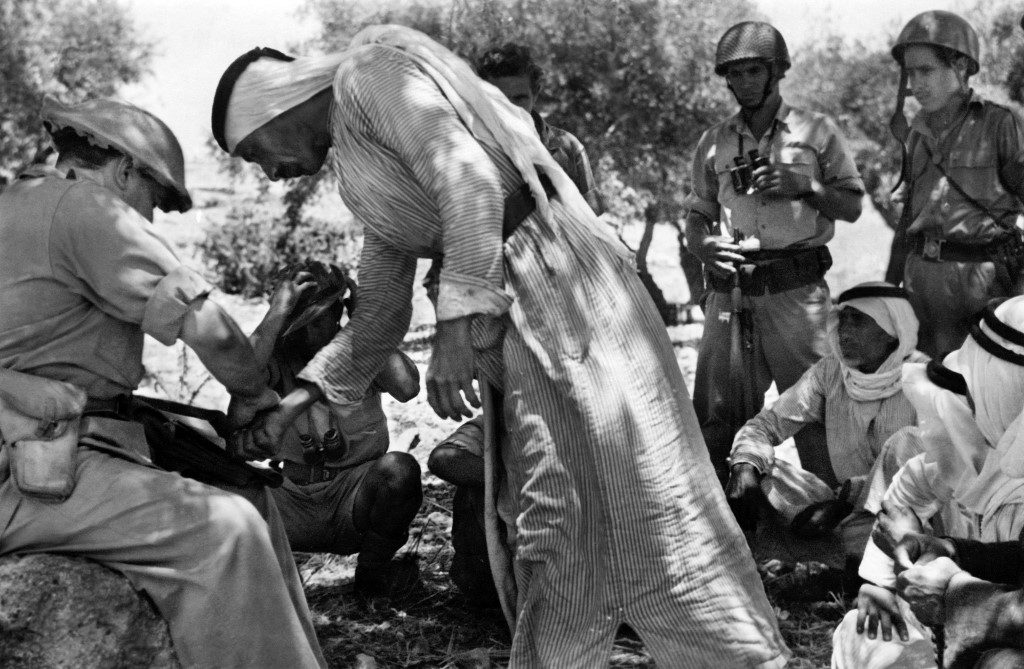
Majed Kayali
Throughout Palestinian history, two significant political events greatly influenced the shaping of the Palestinian national identity, how the Palestinians perceive themselves as a nation, and their relation to the world, especially their Arab neighbours.
The first was the 1948 Nakba which left many Palestinians homeless, stateless, and deprived of an identity, a homeland and independent development. The second incident is marked by the start of armed resistance and the rise of the Palestinian National Liberation Movement in the mid-1960s. Hence, by establishing the PLO as a political and moral entity, they could speak for themselves to the world as Palestinians.
Palestinians’ identity crisis had many reasons. For instance, the first foundation emancipated from Nakba, but it wasn’t sufficient. It was a mere reflection of how others portrayed them, whether that ‘other’ was Israel, Arab regimes or the United Nations. Consequently, such a foundation couldn’t reinforce any nation’s identity, as it only implies regression or dissolution and dissipation.
The absence of a united territory and a unified community resulted in meaninglessness because identity is a historical phenomenon that either evolves and consolidates or descends towards absence and transformation.
The second definition, released in light of armed resistance and the establishment of the PLO, was positive. It confirmed the Palestinians’ presence as a nation and preserved their place, time, and historical narrative. However, that definition was defective and could not be manifested in geographical, demographic, and political outcomes. Nowadays, we witness the demise of the Palestinian national liberation movement and the end of the armed struggle.
If the two events were compared, we would find that the first, the Nakba, is the most influential. Many Palestinians were rendered homeless and subjected to various disparate regimes and authorities that limited their representation as one nation. The second event could not alter that reality, though it could compensate for that with the PLO’s existence.
Establishing a Palestinian authority as per the Oslo Accords in 1993 under the circumstances of the Nakba and the armed resistance, especially with the absence of the PLO, created a third foundational event. That event could not be undermined, as it lasted for three decades. The establishment of the Palestinian Authority solidified the Nakba event and eliminated the armed resistance.
The significant consequences of establishing the Palestinian Authority should not be overlooked in the West Bank and Gaza. It affected the Palestinian national identity and their self-perception as a nation, mainly because it transformed the Palestinian National Movement into an authority that could not end the occupation nor surpass the Nakba.
As I did during my first visit there, any visitor to Palestine will notice that the Palestinian communities have different needs, priorities, demands, political lifestyles, and adherence to the law. This includes the Palestinians in Israel or the Arab citizens of Israel, whom the Jewish state deals with not as Arabs or Palestinians but according to their religious, sectarian, or ethnic identities.
This includes the Palestinians of 1967 in the West Bank, the Palestinians in Jerusalem, and the Palestinians in Gaza, meaning that we have four distinct groups of Palestinians in historical Palestine.
The first group was out of the Palestinian National Movement’s calculations and unconfined by its political system. The distinction between the other three groups arose due to the Palestinian Authority’s establishment, especially with the Palestinian division over politics and power between Fatah and Hamas and the division of the PA between the West Bank and Gaza.
The establishment of the authoritative entity brought forth a dispersion in the Palestinians’ perspective. Many Palestinians weren’t subjected to said entity. Thus, Palestine was reduced to the geography of the West Bank and Gaza, and the Palestinians to citizens in these two areas.
It is well known that Palestinian refugees are dissimilar in their circumstances and priorities. For instance, Palestinians who live in Jordan enjoy nationality or citizenship, the same as Arab citizens of Israel. As a result, they haven’t been subjected to any of the Palestinian political regimes since 1970. On the other hand, Palestinian refugees in Syria, Lebanon and Iraq were weakened by the deteriorating situation in these countries.
We are facing various Palestinian narratives and priorities. An accumulation of narratives based on the original Nakba one, which became vulnerable as new generations, strangers to Palestine, and their parents and grandparents, have emerged. They only know about Palestine from their families and books, which reflect their bond with their country. Such a bond feeds on the memory, the symbols, and everyday life encounters and dialogues.
In conclusion, the Palestinian National movement wasn’t aware of the importance of enriching the Palestinian memory, tightening the Palestinians’ spiritual bond to their homeland, and maintaining the original Palestinian narrative.
Even though it is not wise to base everything on said narrative, it is vulnerable and carries negativity within itself, and new generations will end up recreating newer ones.
DISCLAIMER
The opinions expressed in this publication are those of our bloggers. They do not purport to reflect the opinions or views of Fanack or its Board of Editors.


